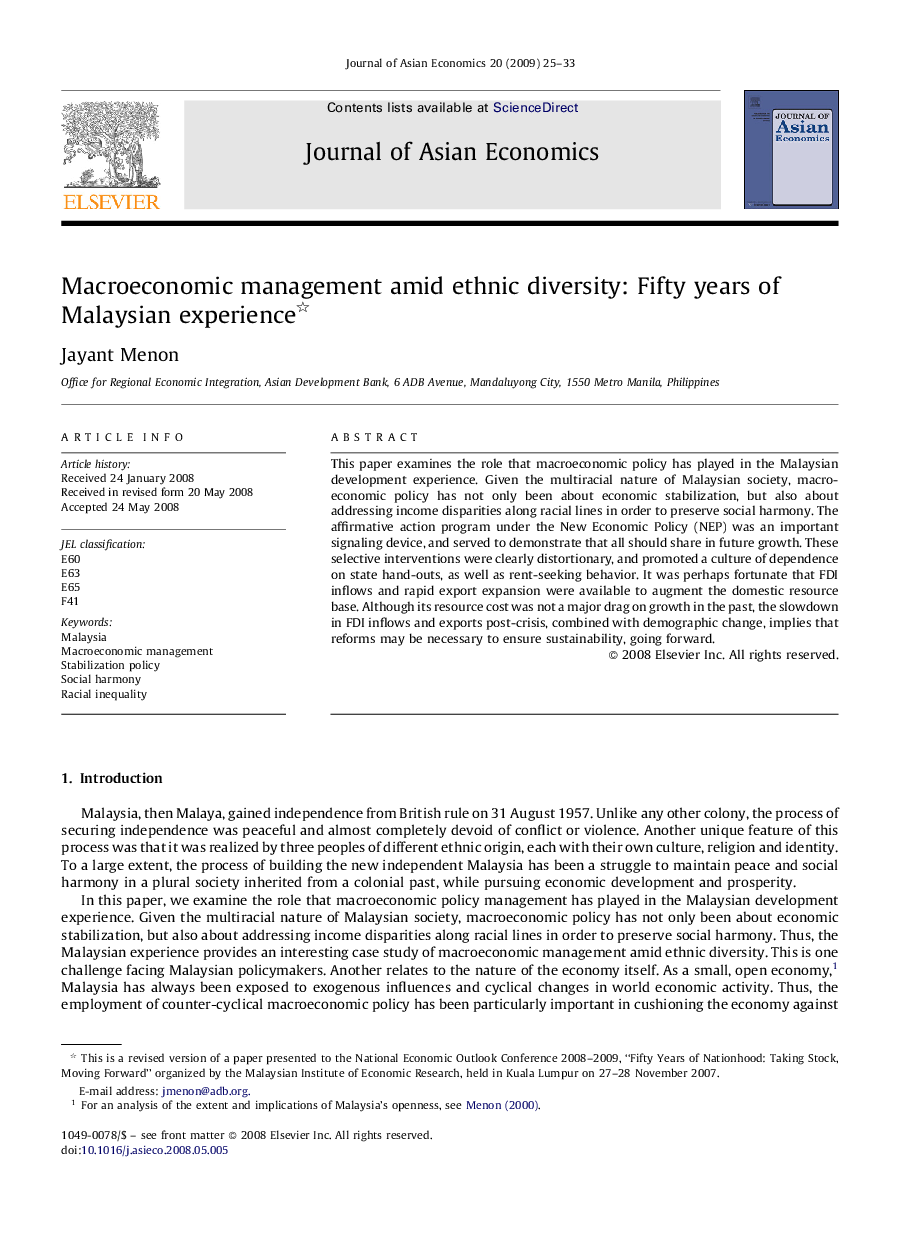| Article ID | Journal | Published Year | Pages | File Type |
|---|---|---|---|---|
| 5087651 | Journal of Asian Economics | 2009 | 9 Pages |
This paper examines the role that macroeconomic policy has played in the Malaysian development experience. Given the multiracial nature of Malaysian society, macroeconomic policy has not only been about economic stabilization, but also about addressing income disparities along racial lines in order to preserve social harmony. The affirmative action program under the New Economic Policy (NEP) was an important signaling device, and served to demonstrate that all should share in future growth. These selective interventions were clearly distortionary, and promoted a culture of dependence on state hand-outs, as well as rent-seeking behavior. It was perhaps fortunate that FDI inflows and rapid export expansion were available to augment the domestic resource base. Although its resource cost was not a major drag on growth in the past, the slowdown in FDI inflows and exports post-crisis, combined with demographic change, implies that reforms may be necessary to ensure sustainability, going forward.
